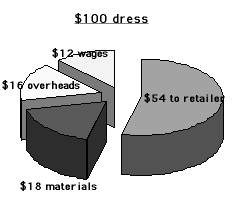Surplus Value
Surplus Value is an economic concept initially cited by English economist David Ricardo which pertains to the surplus derived from the use of a factor of production over its cost. The theory was later expanded upon by Karl Marx and became one of the central theories within Marxian economics.
Marx argues that the ordinary worker, lacking capital, is forced to sell his or her labor, and thus in a sense, him or herself, as a commodity. As such, the wages payed to the laborer represent the estimated economic value of the worker regarded as a commodity which the employer must purchase. However, the laborer usually produces items having much more economic value than is represented by his or her wages. Marx identifies the difference between the amount of economic value that the worker produces and the amount of money that he/she receives in wages as surplus value. Therefore, workers create wealth through the labor they contribute only to have the capitalists take a considerable amount of it without rewarding the worker correspondingly. In the eyes of Marx this is the source of the capitalist's profit, and is central to his criticism of capitalism as an exploitative economic system.
Marx also identifies surplus value as being the source of conflict between the proletariat and the bourgeoisie, as capitalists wish to accumulate as much profit as possible, and as such will attempt to pay the lowest possible wages while selling his/her commodities for the highest possible price. The demands of the worker are the exact opposite: to receive the highest possible wages for his/her work and to buy produced goods for as cheap a price as is possible. Therefore, Marx postulates, there exists a fundamental inconsistency within capitalism, and conflict between these classes is unavoidable.
See Also
External Links
- Surplus Value from Economy Professor
- K. Marx Das Kapital, Volume IV: Theories of Surplus Value
Additional Sources
Richard H. Popkin & Avrum Stroll, Philosophy (Third Edition)
